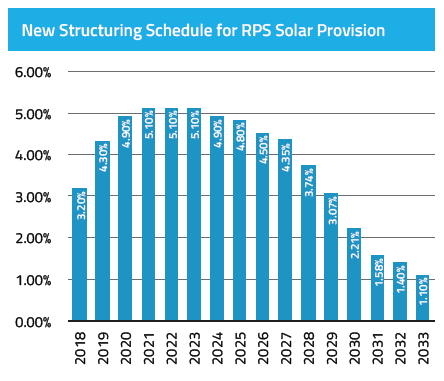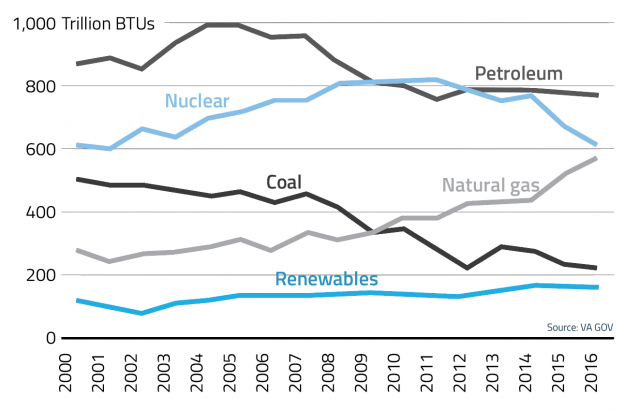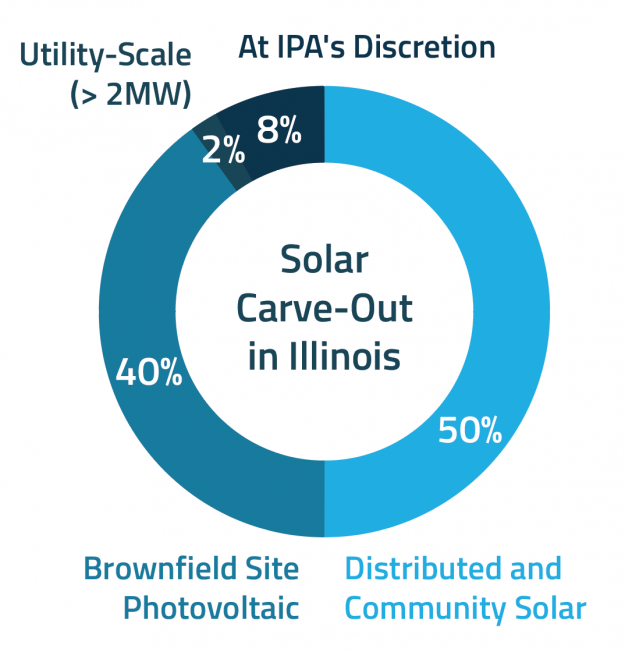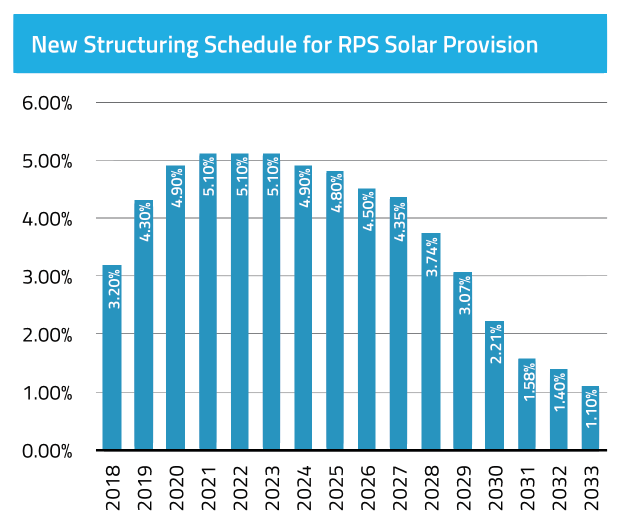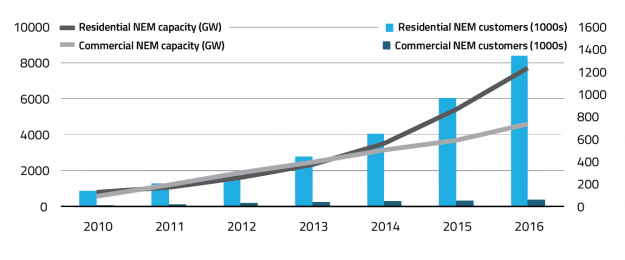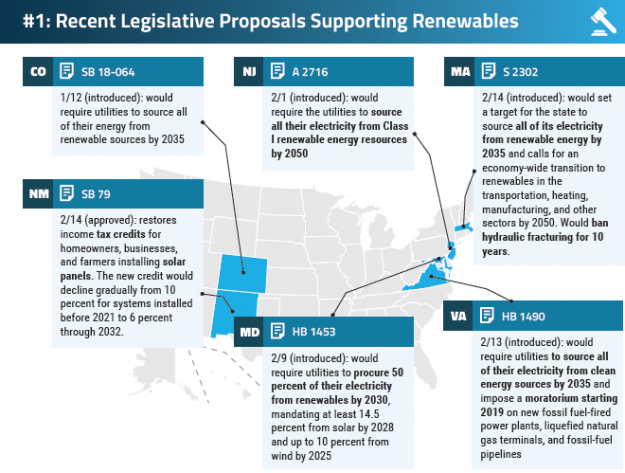New Jersey Unveils Proposal to Begin Transition to New Distributed Solar Regime
The New Jersey Board of Public Utilities staff issued a straw proposal to phase out the current Solar Renewable Energy Certificate or SREC Program following legislation enacted in May 2018, which closes the program when 5.1 percent of electricity sold in the state comes from distributed solar, and transition to a new system, according to…...
